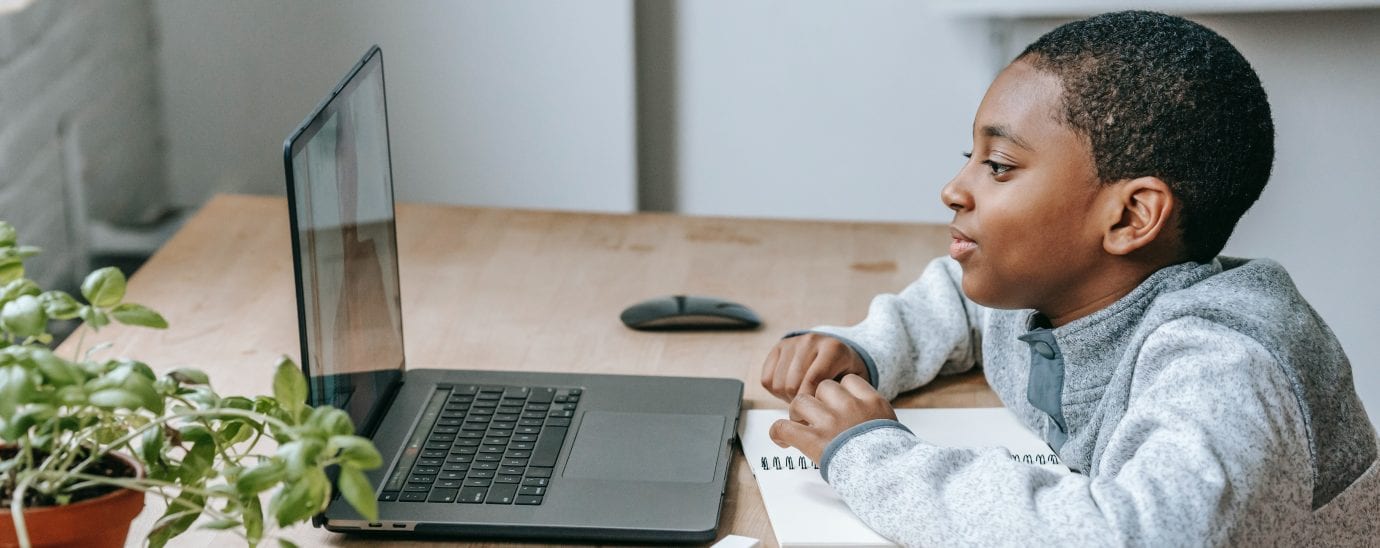Lenovo: remote learning has made kids more digitally equipt beyond school

According to Lenovo’s UK research, seven in 10 (70%) parents and teachers believe digital skills gained during the pandemic will aid children in their future careers.
As the academic year comes to a close and the learnings of the past 18 months are taken into account, new research from Lenovo reveals that seven in 10 (70%) parents and teachers in the UK believe digital skills gained during the pandemic will set children up for life beyond school.
The survey, made up of 500 teachers and 2,000 parents in the UK with children aged four to sixteen years old, outlines the changes parents and teachers want to be made to the school curriculum as a result of the pandemic.
Over half (53%) of parents in the UK believe that the way education has been delivered has changed for the worse due to the pandemic. Teachers are a lot more positive about the situation, as six in 10 (59%) say that the situation has improved. Of these teachers, over half (51%) say it is a result of increased emphasis on independent learning while almost half (48%) believe it has enabled children to work at their own pace and revisit topics at ease.
Changes in learning styles
What’s more, demand for a blended approach to learning that combines online interaction with traditional classroom methods is set to increase, with more than half of teachers (54%) and almost half of parents (47%) in the UK wanting to see the approach carried over into the future school curriculum.
Half of the teachers (55%) and parents (49%) in the UK believe that children’s digital skills have improved with remote learning, compared to before the pandemic. A quarter (25%) of teachers and one in 10 (10%) parents disagree and say that child’s digital skills have worsened as a result of homeschooling.
Independent learning was one of the main skills that parents (39%) and teachers (31%) cited as a benefit of remote learning, one that will set them up for further education and the future world of work.
“Since the start of the pandemic, we have put to use of all types of technology within the classroom. Not only has the technology-enhanced students’ learning and enriched the curriculum, but it has also helped to improve our staff’s knowledge of ICT to provide better education in a post-pandemic world,” said Ellie Wilkinson, Primary School Teacher, Oxford. “We’re excited to move towards a blended learning approach that combines online education with traditional place-based classroom methods and have already seen how it can shape future learning and make a considerable difference to children’s lives.”
Increased demand for tech in the classroom
There is a huge demand for increased technology in the classroom, with three quarters (78%) of parents and six in ten (60%) teachers in the UK wanting desktop PCs or laptops to be incorporated into classroom learning and the national curriculum. In addition, over half (54%) of UK teachers would like to see virtual or augmented reality devices incorporated into classroom learning compared to four in 10 (41%) parents.
Both parents (64%) and teachers (39%) said this is because classroom technology gives children opportunities to learn in different ways. Making homework more interactive was also identified as a reason by half (53%) of parents and a third (31%) of teachers, whereas giving children more opportunities to learn at their own speed was cited by half (51%) of parents and over a third (37%) of teachers.
“The rapid adoption of remote learning has accelerated digital transformation at warp speed, creating radical shifts in the new “everything-from-home” environment that will forever impact how technology is used in education,” said Rich Henderson, Director, Global Education Solutions, Lenovo. “As a result, schools and the EdTech industry need to utilise key learnings from the pandemic to maximise the capabilities of technology and improve online learning. The industry must work alongside schools to improve accessibility and accelerate the impact of technology investments.”
“We are committed to our vision of delivering smarter technology for all – by empowering schools with greater access to smart devices, technology infrastructure and solutions, students can fully benefit from an advanced learning environment and develop the critical, diverse skills they need for the future workplace. This year we will also be launching our Digital Education Equity Programme to give more back to children and schools that need it and help close the digital divide.”
This year, Lenovo will launch the Digital Education Equity Programme. Working in partnership with United Way, Lenovo will donate money, devices and employee time to support schools with technical assistance, digital skills training, careers advice and mentoring. Through the Digital Education Equity Programme, funding will benefit all local, regional and national charities with a focus on digital poverty, education and technology. Lenovo aims to raise £1M with the help of its partners and customers to make a meaningful impact on digital equality in the UK and Ireland and support the most disadvantaged students.
- How to successfully reopen your office in a post-Covid-19 world
- Founder Feature: Neil Purcell, founder and CEO, Talent Works
- Ensuring a secure digital transformation journey
- Build these five habits to reduce the risk of ransomware
Methodology
The survey was commissioned by Lenovo and carried out by Censuswide. It was distributed in the UK and completed through an online platform in May 2021. The survey is made up of 500 teachers and 2001 parents with children aged four to sixteen years old.
For more news from Top Business Tech, don’t forget to subscribe to our daily bulletin!
